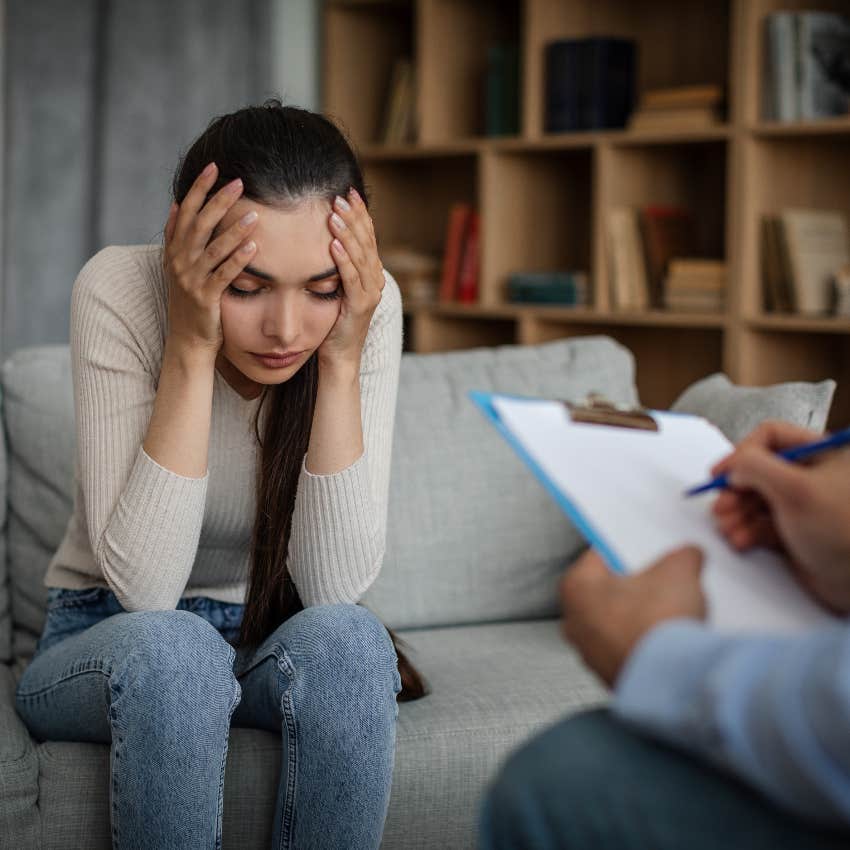Overcoming trauma is far from a linear journey, and having professional guidance is often the best way to work through a complex set of mental health issues.
Ellie Rose, a therapist at TikTok, conducted an experiment on the intersection of mental health and technology, looking at how AI can respond to trauma.
Trauma therapist rated mental health counseling from ChatGPT.
Rose, a former family therapist specializing in childhood trauma, offered an early prediction about AI-powered mental health counseling, “Given that ChatGPT brings everything together on the Internet, I expect it to be worse.”
Rose sat in front of her laptop and typed her first question: “How do I recover from my childhood trauma?”
She was pleasantly surprised by the first result that ChatGPT gave, which was “seeking professional help.”
ChatGPT’s second answer to the question of how to recover from trauma was a little more out of touch. It declared, “Develop self-awareness.” The AI function suggested ways to build self-awareness, suggesting “things like journaling, mindfulness and meditation.”
Rose rated this answer a 5 out of 10, noting, “If you’ve had childhood trauma, you’re probably very self-aware, and that’s not a problem.”
ChatGPT’s third recommendation on how to recover from trauma was to practice self-care by focusing only on exercise, diet and sleep, which Rose rated as “good, kind of, 6 out of 10.” .
“Setting boundaries,” was another suggestion, though Rose shared, “that’s what it says, it doesn’t give you any guidelines.”
As anyone who grew up in an unstable family structure or who struggles with being a people-pleaser knows, setting boundaries isn’t as easy as announcing that you’re setting boundaries.
Setting firm boundaries is a practice, one that can be difficult at first, but like any muscle, gets stronger the more effort is put into it.
For ChatGPT to say that people with trauma should set boundaries without explaining how to do that just shows how limited ChatGPT’s resources are, especially when it comes to more sensitive situations, such as someone’s mental health. working on
ChatGPT tells trauma survivors to “reframe your narrative with positive self-talk and rewrite your life story.”
Rose rightly points out that the issue lies with this sliver of advice, saying, “I like the idea, but the action is hard.”
“Positive self-talk is obviously great, but I think understanding why it’s so hard, so important,” she said.
The therapist explained that the problem with ChatGPT’s responses was that it offered solutions without any context or understanding of how trauma works.
“It told me what the problem is with social media as well. It gives you solutions without context and without really understanding things,” Rose explained. “My problem is that it usually doesn’t work, or it makes you feel too embarrassed.”
She gave an example of why this might be, saying: “If you’ve had a really challenging family to raise, you’re still struggling with that family for a lot of reasons, and somebody says to you, ‘Raise the limit. ,’ like, yeah, okay, that’s fine, but it’s probably really, really hard to … actually implement.
“Instead, you might just feel bad because you can’t do it … when in reality, you need to understand why it’s so hard for you, specifically,” Rose said. said
 Prostock Studio | Shutterstock
Prostock Studio | Shutterstock
She concluded: “What I really want to drive home is that any advice you see online, if it just gives you a solution without knowledge and explanation, and you feel bad about yourself and Feel bad, so look for new advice.”
She gets straight to the point of why ChatGPT doesn’t make the best therapist, and that’s precisely because tech isn’t human.
ChatGPT does not understand privacy or context. It’s not knowing who you are as a unique, unique person with a unique, unique history that affects how you feel and act in the present moment.
An AI tool may be able to spout generic platitudes to communicate mental health issues, but it doesn’t have the human connection to go to a meeting with a flesh-and-blood therapist, who can guide people through healing. Make it especially suitable for them. .
Alexandra Blogger is a writer on the Teri Tango News and Entertainment team. He covers social issues, pop culture and everything to do with the entertainment industry.
#Trauma #therapist #rates #mental #health #counseling #ChatGPT